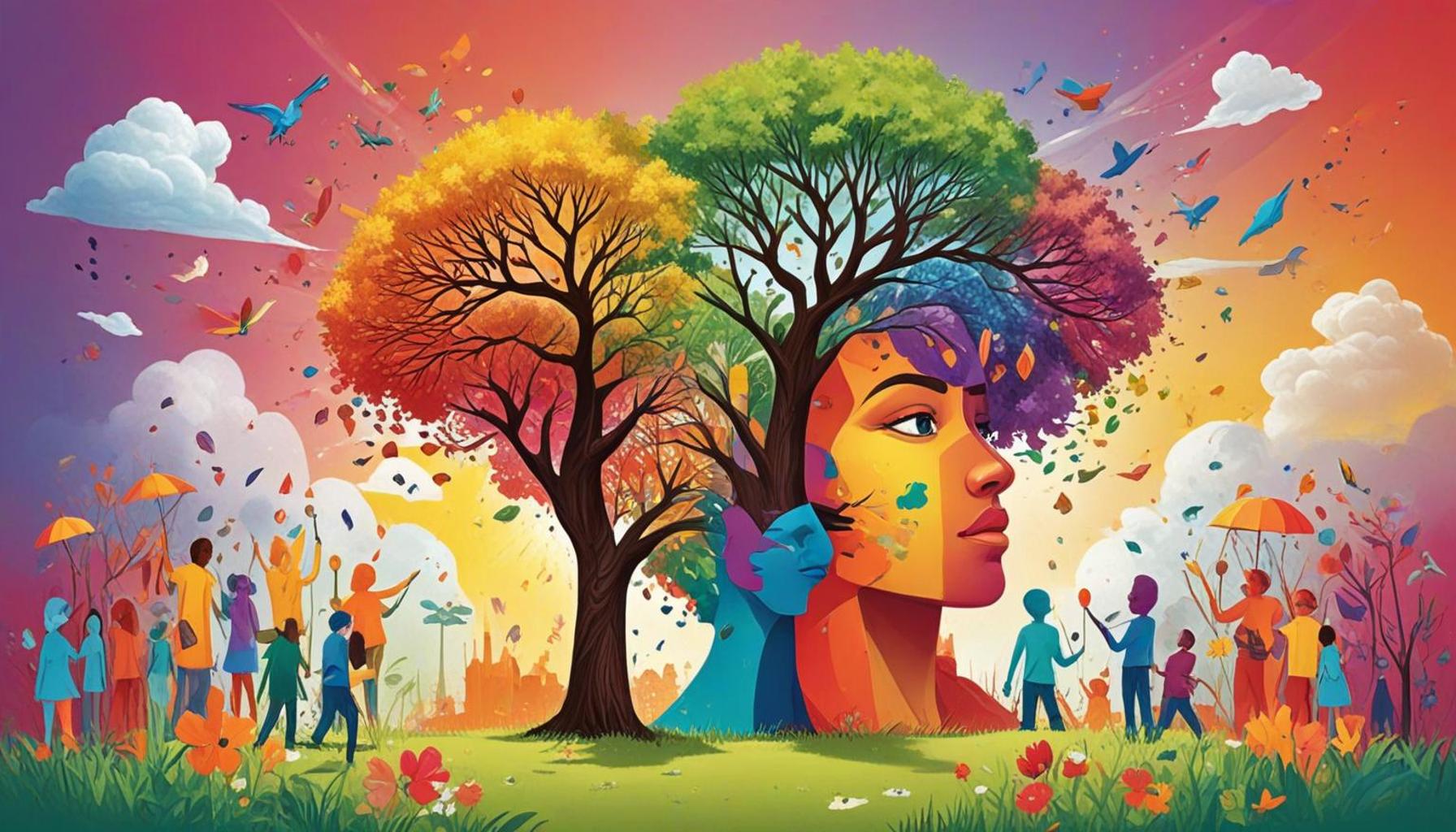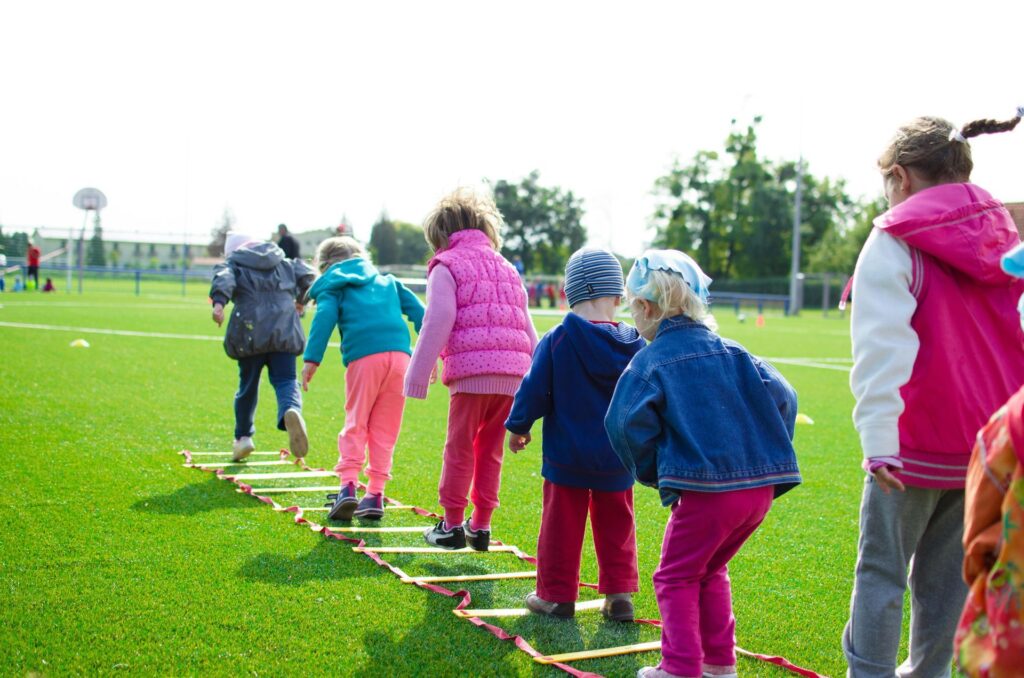Positive Reinforcement and Conflict Management: How to Foster a Growth Mindset in Diverse Communities

The Importance of Growth Mindset in Nigerian Communities
In today’s interconnected world, fostering a growth mindset is more crucial than ever, especially in diverse communities. The manner in which we approach and resolve conflicts can significantly influence both personal and collective growth. Adopting a growth mindset—a belief that abilities and intelligence can be developed through dedication and hard work—opens pathways for collaboration and personal development.
Positive reinforcement plays an essential role in conflict resolution, especially in a culturally rich country like Nigeria, where over 250 ethnic groups coexist. In diverse environments, it is vital to encourage an atmosphere where members feel comfortable addressing conflicts and expressing their viewpoints. Positive reinforcement in conflict situations can significantly:
- Encourage open communication: By actively listening and acknowledging each party’s perspective, individuals are more likely to share their thoughts without fear of judgment.
- Enhance collaboration and trust: Trust builds when community members feel valued; this fosters teamwork that helps bridge cultural gaps and promotes unity.
- Build resilience among community members: Resilience enables individuals to face challenges without becoming discouraged, leading to a more adaptive and robust community.
In Nigeria’s multifaceted society, understanding these dynamics is essential. When applied effectively, positive reinforcement strategies can lead to:
- Stronger community bonds: When individuals feel appreciated and recognized for their contributions, it cultivates a sense of belonging that binds the community together.
- Reduced tensions in interpersonal interactions: Addressing conflicts constructively diminishes hostility and promotes an atmosphere of mutual respect, often leading to diminished violence and discord.
- Empowered individuals who embrace challenges as opportunities: Encouraging a mindset that sees learning as a process fosters a proactive approach to difficulties, motivating individuals to grow and adapt.
Moreover, employing conflict management approaches that prioritize positive outcomes can create spaces conducive to learning and growth. For instance, community workshops focused on conflict resolution can use role-playing exercises where participants practice positive reinforcement, resulting in practical skills that benefit the whole society. This approach not only elevates individual lives but fosters an inclusive society that embraces progress and innovation.
This article aims to delve into effective strategies for utilizing positive reinforcement in resolving conflicts while emphasizing the transformative power of cultivating a growth mindset in diverse communities. Join us as we explore engaging insights and practical examples tailored to enrich our understanding and application of these concepts, all while considering the unique cultural landscape of Nigeria.

SEE ALSO: Click here to read another article
Understanding Positive Reinforcement in Conflict Management
To navigate the complexities of conflict in diverse communities, particularly in a nation like Nigeria, it is essential to grasp the concept of positive reinforcement. At its core, positive reinforcement involves recognizing and rewarding desirable behaviors, which in turn encourages individuals to replicate those behaviors in the future. This principle can be a game-changer when applied to conflict management as it modifies how disputes are approached and resolved. Instead of focusing on punitive measures that often exacerbate tensions, fostering a culture of understanding and appreciation can lead to transformative outcomes.
In Nigeria, where cultural nuances vary significantly from one region to another, understanding how to implement positive reinforcement during conflict resolution is crucial. Here are some key strategies that can be effectively utilized:
- Celebrate collaborative efforts: Acknowledging instances where individuals or groups come together to address issues allows others to see the benefits of teamwork. Whether it is a community meeting aimed at resolving a local dispute or grassroots initiatives promoting dialogue between different ethnic groups, public recognition of joint efforts encourages more community members to get involved.
- Encourage empathetic engagement: Fostering an environment where individuals are rewarded for understanding and valuing different perspectives is essential. By publicly recognizing those who practice empathy in conflict situations, communities build a culture that prioritizes respect and consideration.
- Promote skill-sharing workshops: Organizing workshops where members can learn conflict resolution techniques, including positive reinforcement strategies, can be empowering. When participants feel valued for their contributions and their efforts are affirmed, they become champions of these practices in their daily interactions.
While conflict can often lead to negative emotions and division, positively reinforcing constructive behaviors shifts the focus from confrontation to collaboration. This approach not only facilitates the resolution of present conflicts but also prepares individuals to handle future disagreements more effectively. By applying the principles of positive reinforcement, communities can break cycles of hostility and foster strong, meaningful relationships that transcend cultural barriers.
Additionally, recognizing the importance of celebrating progress, no matter how small, is an integral part of nurturing a growth mindset. For instance, local leaders might highlight stories of individuals who have transformed their approach to conflict management, thus inspiring others to adopt similar practices. This reinforcement of positive behavior creates a ripple effect, encouraging entire communities to invest in personal growth alongside their neighbors.
Ultimately, as Nigeria continues to evolve with its rich tapestry of cultures, the integration of positive reinforcement within conflict management can serve as a unifying force. As we delve deeper into the interconnectedness of growth mindset and conflict management, it becomes evident that an atmosphere of appreciation and respect can revolutionize the way communities engage with one another.
| Advantages | Description |
|---|---|
| Enhanced Communication | Positive reinforcement encourages open dialogue, supporting conflict management strategies. |
| Cultivating Resilience | Adopting a growth mindset fosters resilience among community members, enhancing adaptive learning. |
| Inclusivity | Diverse perspectives are valued, promoting a sense of belonging and social cohesion. |
| Improved Team Dynamics | Conflict management through positive methods creates trusting environments, leading to effective collaboration. |
To truly embrace the principles of positive reinforcement and effective conflict management, communities must actively engage in practices that foster a growth mindset. This involves recognizing and utilizing the strengths within diverse groups. For instance, through regular workshops focused on conflict resolution, participants can learn to handle disagreements constructively. The incorporation of feedback loops encourages individuals to reflect on their experiences and grow from them, which is central to cultivating resilience.Additionally, the application of active listening skills in everyday interactions can significantly reduce misunderstandings. This encourages an environment where all voices are heard, further promoting inclusivity. By prioritizing these strategies, communities strengthen their ability to navigate conflicts, leveraging differences as opportunities for collective learning and growth.
RECOMMENDED: Check out this similar article
Applying Positive Reinforcement in Conflict Scenarios
Implementing positive reinforcement in conflict management can create environments where dialogue thrives and where individuals feel motivated to engage in conflict resolution. In Nigeria’s diverse communities, where ethnic and cultural differences can lead to misunderstandings, it is crucial to codify such strategies into everyday practices. One effective method for promoting a growth mindset through positive reinforcement involves establishing mentor-mentee relationships within communities.
Connecting seasoned conflict managers with novices fosters a culture of learning and development. Experienced individuals can share their success stories and underscore the effectiveness of positive reinforcement techniques. For example, community leaders might organize mentorship programs highlighting transformative stories, such as how mediation efforts reduced tensions in a community dispute. This encourages aspiring mediators to adopt similar approaches, thus cultivating a rich landscape of conflict management skills.
Leveraging Local Narratives
Narratives play a powerful role in shaping community dynamics and attitudes towards conflict. By documenting and showcasing local successes, communities can illustrate the viability of alternatives to confrontation. For instance, initiatives like “community dialogues” that have succeeded in bridging gaps between rival groups can be highlighted through local media. Elevating these stories not only celebrates positive behaviors but also serves as a platform to disseminate strategies for effective conflict management among diverse groups.
Moreover, such narratives strengthen social bonds. When members of a community see their peers celebrated for constructive conflict resolution, it affirms their belief in collaboration. This communal acknowledgment provides a sense of belonging, reinforcing the values of respect and understanding. Importantly, rewarding such narratives with public honors during community events can further incentivize these behaviors, demonstrating to the broader community that harmony yields tangible benefits.
Integrating Positive Reinforcement into Education Systems
The education sector holds significant potential in fostering a growth mindset through positive reinforcement. Schools can introduce programs that teach students conflict resolution techniques, focusing on the principles of positive reinforcement. Workshops and role-playing exercises can simulate real-life conflict scenarios, emphasizing the importance of empathy and understanding.
Additionally, educator training must incorporate these methods, ensuring teachers recognize and reward students who exhibit cooperative behaviors and effective communication skills. Schools in Nigeria can create awards or recognition days for students who exemplify positive engagement with their classmates. This not only encourages continued positive behavior but also sets a foundation for students to carry these skills into adulthood.
According to a study by the National Bureau of Statistics in Nigeria, conflicts are estimated to cost the economy billions of naira each year. Consequently, prioritizing positive reinforcement in conflict management can lead to significant economic benefits. When communities learn to handle disputes amicably, they not only foster a more supportive environment but also reduce the social and economic costs associated with conflict.
Additionally, businesses can also apply positive reinforcement strategies within workplace conflict resolution practices. Organizations that adopt such approaches tend to enjoy enhanced collaboration among employees and a reduction in disputes, ultimately leading to improved productivity and morale.
In focusing on positive reinforcement, whether in educational institutes, community settings, or workplaces, the goal remains the same: to cultivate a proactive mindset where conflict resolution becomes a shared community endeavor. By doing so, diverse Nigerian communities can harness the power of unity, respect, and cooperation, laying the groundwork for a more harmonious future.
SEE ALSO: Click here to read another article
Conclusion
In conclusion, the fusion of positive reinforcement and conflict management serves as a powerful catalyst for fostering a growth mindset within Nigeria’s diverse communities. By prioritizing strategies that celebrate constructive behavior and effective resolutions, communities can transform conflict into a valuable opportunity for growth and connection. Mentorship programs, local narratives, and educational initiatives can play pivotal roles in shifting the perception of conflict from a challenge to a chance for collaboration and learning.
The socio-economic impact of mastering conflict resolution through positive reinforcement is substantial. As highlighted earlier, conflicts drain resources and hinder community development, with billions of naira lost annually. Yet, when communities embrace peace-building practices, not only are social fabrics strengthened, but economic benefits also flourish, enhancing overall prosperity. For organizations, a similar ethos applied in workplaces can elevate morale and drive productivity, showcasing that a culture of support and cooperation enriches everyone involved.
Ultimately, by embedding the principles of positive reinforcement into daily practices—whether in schools, community initiatives, or workplaces—Nigerians can cultivate an environment where harmony thrives, and every conflict is approached as a constructive dialogue. This shift towards embracing differences through understanding, respect, and collaboration is vital for laying the groundwork for a resilient and united future for all communities in Nigeria.
Related posts:
Positive Reinforcement in Virtual Environments: Stimulating a Growth Mindset in Online Students
The Integration of Positive Reinforcement in Sports Practice: Fostering a Growth Mindset in Athletes
The Impact of Positive Reinforcement in Volunteering Activities: Fostering a Growth Mindset in Adult...
Positive Reinforcement in Family Communication: Strengthening Growth Mindset Among Parents and Child...
Positive Reinforcement in Artistic Practice: How Celebrating the Creative Process Fosters a Growth M...
Positive Reinforcement Strategies to Foster Resilience in Adults with a Growth Mindset

Linda Carter is a writer and self-discipline expert specializing in personal growth, habit building, and goal achievement. With extensive experience helping individuals develop focus, consistency, and resilience, Linda shares her knowledge on our platform. Her goal is to empower readers with practical advice and strategies to cultivate self-discipline, make intentional choices, and achieve success in both their personal and professional lives.